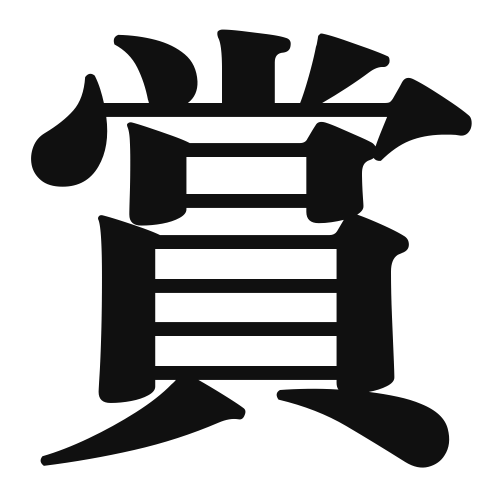1. Overview of Meaning
The kanji “賞” (shou) means “reward” or “prize.” It is often used to denote recognition for achievements or excellence in various fields, such as academics, sports, and arts.
2. Formation and Radicals
The kanji “賞” is a compound character (会意文字) that combines two elements: the left part, “賞” (shou), which relates to “to praise,” and the right part, “相” (sou), which can mean “mutual” or “together.” The radical of this kanji is “賞” itself, indicating its primary meaning related to rewards and recognition.
3. Examples of Usage
Common words and phrases that include “賞” are:
- 賞金 (shoukin) – prize money
- 受賞 (jushou) – receiving an award
- 賞賛 (shousan) – admiration or praise
Example sentence in daily conversation:
「彼は文学賞を受賞しました。」 (Kare wa bungakushou o jushou shimashita.) – “He received a literary award.”
4. Synonyms and Antonyms
Similar kanji with related meanings include:
- 報酬 (houshuu) – compensation or reward, often for work done.
- 栄誉 (eiyo) – honor or glory, which emphasizes the prestige of the recognition.
Antonyms include:
- 罰 (batsu) – punishment, which is the opposite of reward.
5. Cultural and Historical Background
The concept of “賞” is deeply rooted in Japanese culture, where recognition and awards play a significant role in motivating individuals and fostering a sense of community. Various awards, such as the Nobel Prize, are highly respected.
Proverbs and idioms related to “賞” include:
- 「努力は必ず報われる」 (Doryoku wa kanarazu mukuwareru) – “Effort will surely be rewarded.”
This reflects the cultural belief that hard work and dedication will lead to recognition and success.
